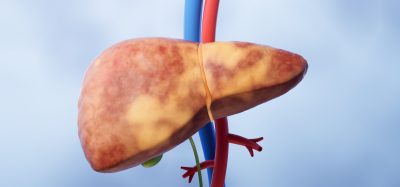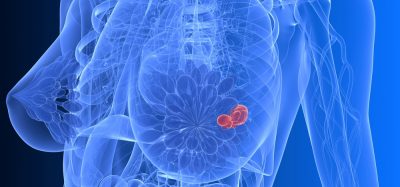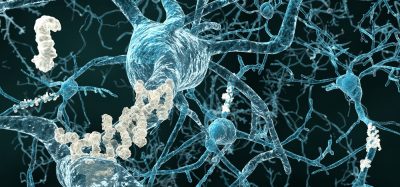AI at the forefront of age-related disease treatment
Posted: 19 May 2025 | Dr Ann Beliën (Founder and CEO of Rejuvenate Biomed) | No comments yet
The body undergoes changes with age that can lead to conditions like sarcopenia and osteoarthritis, burdening individuals and healthcare systems. Find out how Rejuvenate Biomed uses AI to decode ageing biology and develop combination therapies targeting the root causes of age-related diseases, offering hope for better treatments and quality of life.


As we age, our bodies naturally undergo a series of biological changes that can lead to a decline in health. Age-related diseases – such as neurodegenerative disorders, osteoarthritis, and sarcopenia – have become increasingly prevalent, posing a significant burden not only for patients and their families, but also for healthcare systems around the world. While many of these conditions are currently managed rather than cured, technological innovation is unlocking new possibilities for drug development. By gaining a deeper understanding of the interconnected pathways of disease, the field is uncovering promising drug candidates with the potential to alter the course of age-related conditions.
The key to this revolution is the acceptance that the onset and progression of age-related diseases are driven by complex multifactorial processes with many interconnected pathways, described as “the hallmarks of ageing.” Understanding the complexity of these disease mechanisms is essential to developing targeted interventions, likely combination drugs, that not only stop disease progression but also improve quality of life for the ageing population.
Decoding the biology of ageing to treat disease
At Rejuvenate Biomed, we’re working to decode the biology of ageing to discover and develop innovative combination therapies for age-related diseases.
Biomarkers aren’t just supporting drug discovery – they’re driving it
FREE market report
From smarter trials to faster insights, this report unpacks the science, strategy and real-world impact behind the next generation of precision therapies.
What you’ll unlock:
- How biomarkers are guiding dose selection and early efficacy decisions in complex trials
- Why multi-omics, liquid biopsy and digital tools are redefining the discovery process
- What makes lab data regulatory-ready and why alignment matters from day one
Explore how biomarkers are shaping early drug development
Access the full report – it’s free!
Our proprietary AI-powered platforms, CombinAgeTM and CelegAgeTM enable a biology-first and disease-agnostic approach, focusing on the broader biology and interconnected mechanisms of ageing to guide both asset and indication selection. Unlike approaches that focus on a single target, Rejuvenate platforms identify drugs that simultaneously impact various targets within the 12 recognised ‘hallmarks of ageing’. As an example, the company’s Phase II drug candidate in sarcopenia, RJx-01, is a combination drug that targets dysregulated pathways across 10 out of the 12 hallmarks of ageing. This way we tackle the disease at multiple levels simultaneously, with the potential to address the root causes associated with the age-related disease.
Unlike approaches that focus on a single target, Rejuvenate platforms identify drugs that simultaneously impact various targets within the 12 recognised ‘hallmarks of ageing’.
The process starts with CombinAge, our machine learning platform that sifts through vast datasets of biomedical knowledge of hundreds of individual drugs that have already been proven safe for use in older adults. The platform analyses pathways linked to hallmarks of ageing, such as mitochondrial dysfunction, epigenetic alterations, and intercellular communication, to uncover combinations of those individual drugs that can impact multiple ageing pathways simultaneously.
Once a combination is identified, we undergo an additional safety check before moving to the next step, in vivo evaluation through our CelegAge platform. CelegAge uses C. elegans worms to evaluate the impact of drug combinations on health span. This model focuses on outcomes like movement, speed, and overall mobility – which are key indicators of ageing and vitality, to validate CombinAge’s predictions. If a combination is confirmed to be safe and has an impact on health span, we then use CombinAge, which contains disease-specific data, to predict which age-related disease the drug combination could most effectively treat. The drug combination is now ready to be evaluated through the typical preclinical process and once the proof of principle is demonstrated in animal models, the combination is suitable to be advanced directly into Phase II clinical trials.
Accelerated process with enhanced success
This AI-driven, multi-step approach enables us to evaluate thousands of potential drug candidates in a fraction of the time it would traditionally take. It also allows us to identify drug combinations that target multiple ageing pathways simultaneously and that have been deemed safe in the clinic previously. This does not only derisk clinical development but increases clinical success. It also reduces the trial-and-error nature of traditional drug discovery, allowing us to speed up the process of bringing life-changing therapies to patients.
Our approach has generated a robust pipeline of five unique combination drugs targeting different age-related diseases, including neuromuscular, musculoskeletal, metabolic, neurodegenerative and immunology related indications. The approach has been successfully validated through our lead sarcopenia candidate, RJx-01.
RJx-01 – addressing Sarcopenia, a growing medical concern
Sarcopenia is a common condition in older individuals that results in the gradual loss of muscle strength, performance and mass, severely impacting a person’s mobility and quality of life. There are currently no FDA-approved treatments for the condition and the potential to improve outcomes for older patients suffering from this debilitating condition is immense.
Our platform’s prediction of RJx-01’s impact on sarcopenia-specific ‘hallmarks’ was validated through robust, cross-species data derived from well-characterised model organisms in ageing research.
Our platform’s prediction of RJx-01’s impact on sarcopenia-specific ‘hallmarks’ was validated through robust, cross-species data derived from well-characterised model organisms in ageing research. Its potential was further demonstrated in a Phase Ib trial, where, in addition to a generally safe and well-tolerated profile, patients with muscle disuse-induced sarcopenia treated with oral RJx-01 experienced significant improvements in muscle strength, function, and fatigue resistance.
Based on this data we’re excited to initiate two Phase II studies this year to explore RJx-01’s potential in treating muscle weakness caused by conditions beyond just age-related sarcopenia.
The first study will explore the potential of RJx-01 as a treatment for patients living with chronic obstructive pulmonary disease (COPD) suffering from muscle weakness, a systemic effect of the disease. It will be conducted in collaboration with the University of Leicester, UK, and is funded through a multi-million-dollar award from Wellcome Leap, a non-profit organisation established by Wellcome Trust. The second study will focus on patients treated with GLP-1 receptor agonists, who experience muscle-related side effects.
Partnerships fuelling growth
At Rejuvenate Biomed, we believe that collaboration is essential to advancing scientific progress. The complexity of ageing and age-related diseases requires expertise across various disciplines, from molecular biology and genetics to artificial intelligence and clinical research. That’s why over the past year, we’ve formed strategic partnerships with esteemed academic institutions and research organisations such as the University of Leicester, as well as global data analytics leaders like SAS.
Our collaboration with SAS, a global leader in data analytics and AI, supports the development of a user-friendly drug repurposing tool. This tool helps researchers uncover medically relevant insights about drugs, diseases, and biological networks by systematically exploring hidden biological patterns. We are uniting our drug discovery platform and end-to-end drug development proficiency with SAS’ decades of deep analytics expertise.
Our collaboration with SAS, a global leader in data analytics and AI, supports the development of a user-friendly drug repurposing tool.
Designed for ease of use, the tool will support bioscience researchers with limited coding experience while also serving as a foundation for advanced analytics model development in computational biology.
Additionally, the collaboration between the two companies provides Rejuvenate Biomed with the tools and technology needed to enhance and scale our drug discovery platform, third-party services, and drug development pipeline.
Such collaborations are vital not only for advancing the science behind our treatments but also for ensuring that patients benefit from much-needed therapies faster.
Looking ahead
I founded Rejuvenate Biomed as a personal challenge after witnessing my fathers’ experience with various age-related diseases and the lack of effective treatments. My vision for the future is one where age-related diseases are no longer quality of life-limiting, but rather manageable and treatable conditions. Through the application of AI, precision medicine, and innovative therapies like RJx-01, we are working towards a future where ageing itself can be addressed at a biological level, before it leads to debilitating disease. Our AI-powered platforms give us the tools to fundamentally change how we understand and treat ageing and develop safe and effective drugs for patients that need them most.
The real-world impact on patients is at the heart of everything we do. Our mission is not to extend lifespan but to extend healthspan – the period of life during which individuals remain healthy and free from chronic diseases. We are working toward a future where we can holistically address the root cause of disease and transform the prevention and management of age-related diseases.
I firmly believe that we are on the cusp of a revolution in ageing research, and that Rejuvenate Biomed is a front runner. Our commitment to advancing science and improving patient outcomes is unwavering, and we are excited to continue advancing innovative therapies that promote healthy ageing.
Meet the author


Ann brings more than two decades of experience in drug development, covering the entire journey from the laboratory bench to the market. She gained this extensive experience through a range of international assignments in the United States, the Netherlands, and Belgium. Ann evolved from scientific roles to operational and strategic positions in various therapeutic areas, including oncology, neurology, immunology, and infectious diseases. She has also been actively involved in external and open innovation, with a focus on therapeutics and prevention.
During her career, Ann served as a due diligence representative for R&D at Johnson & Johnson (J&J). She was also a member of the management board of Janssen Prevention Center for a period of five years. She joined J&J in 2000, after completing her postdoctoral research at ETH in Zürich, Switzerland. Ann holds a PhD from the University of Irchel in Zürich, Switzerland, and a master’s degree from the Free University of Brussels (VUB), Belgium.
Related topics
Artificial Intelligence, Big Data, Biopharmaceuticals, Disease Research, Drug Development, Drug Repurposing, Machine learning, Precision Medicine
Related conditions
Age-related diseases, neurodegenerative disorders, Osteoarthritis, sarcopenia
Related organisations
Rejuvenate Biomed
Related people
Dr Ann Beliën (Founder and CEO of Rejuvenate Biomed)








